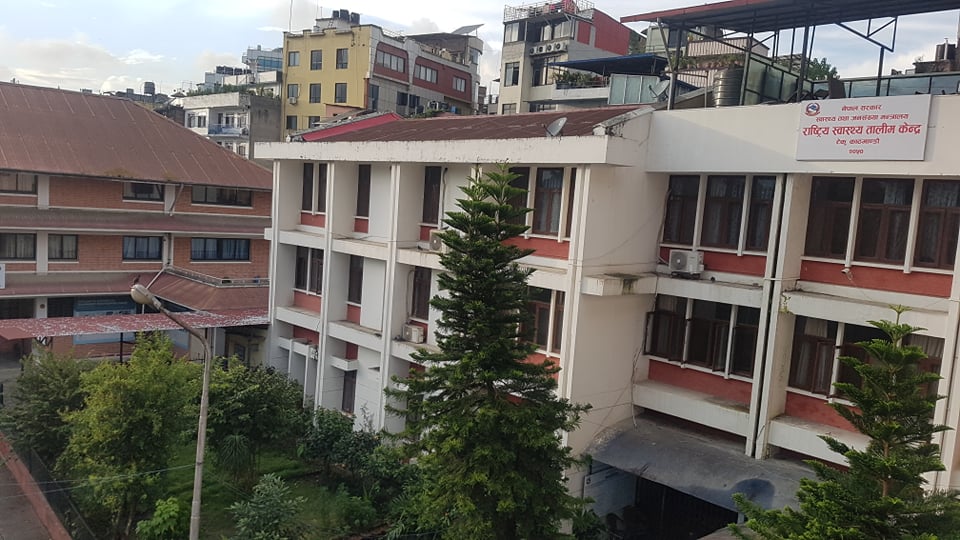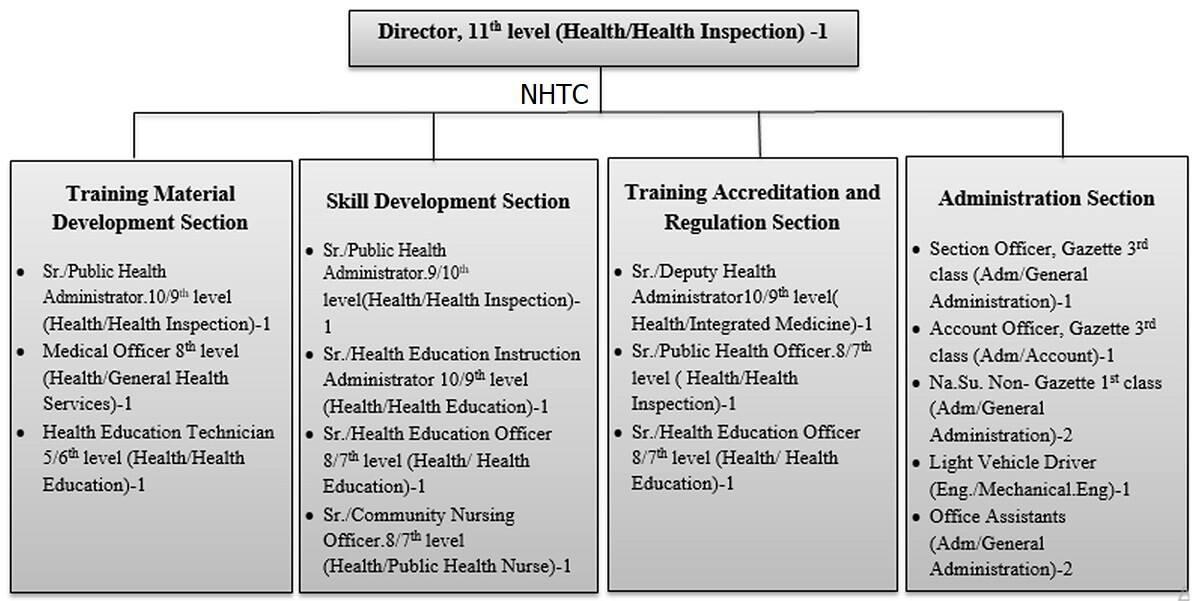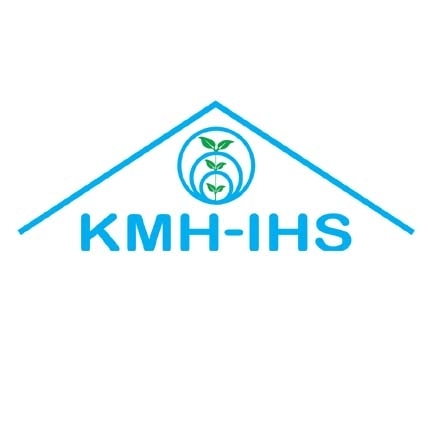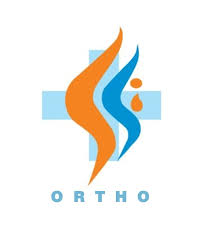Overview
The National Health Training Center (NHTC), working with Nepal's Ministry of Health and Population (MoHP), is a central organization dedicated to improving healthcare services nationwide. Established in 1993, NHTC oversees and organizes health training programs in Nepal, which aim to achieve the goals of the National Health Policy 2019, the National Health Sector Strategy 2015-2020, and the Sustainable Development Goals 2030.
The focus is always on upgrading healthcare quality through well-planned training. NHTC prioritizes increasing healthcare providers' technical and managerial capacity to offer better services to the community.
Core Mission: Objectives, Goals, and Strategic Approach
NHTC has a clear goal: to develop healthcare service providers' technical and managerial capacity at all levels. This will ensure that everyone can access quality healthcare services and contribute to improving the population's health.
The center has specific objectives to achieve this. One key objective is standardizing Learning Resource Packages (LRPs), such as Trainer's Guides, Participant's Handbooks, and Reference Manuals. Standardizing resources ensures that everyone learns from the same high-quality material.
Another key objective is to organize and conduct training programs that respond to the country's specific needs and enhance service provider competency. This ensures that health professionals are well-equipped to handle the challenges they face in their work. NHTC strives to guarantee the quality of training by following national standards and strengthening the capacity of its training sites. This involves using new training approaches and emphasizing ongoing post-training follow-up.
NHTC employs several strategies to achieve its mission. These include assessing, standardizing, and accrediting training programs and sites. Another key strategy is developing and standardizing training packages. NHTC also works to build the institutional capacity of training sites, allowing for better education delivery. The center offers various training, including pre-service, orientation, refresher, short-term, and long-term training, all based on the country's needs.
Integrating and embedding training programs is a central part of the work. NHTC develops relationships with organizations for professional career development. It boosts its Training Information Management System (TIMS), creating a pool of qualified federal and provincial trainers. This structured approach ensures the center's goals are met effectively.

Academic Programs
NHTC offers various training programs to improve the skills of healthcare professionals. One primary offering is the Diploma in Biomedical Equipment Engineering (DBEE). The details of the DBEE program show that it is a certificate/diploma program in partnership with the CTEVT.
The program lasts 18 months. NHTC also has essential sections that support training delivery. The Training Material Development Section develops national training policies, strategies, and regulations.
The Skill Development Section focuses on building healthcare workers' abilities, and the Training Accreditation and Regulation Section sets policies for training accreditation and quality. Together, these sections provide a robust training framework for healthcare professionals.
The biomedical equipment engineering curriculum provides practical skills in managing medical devices. The curriculum is divided into three semesters. Early coursework focuses on the core elements of biomedical equipment engineering, with options for specialized study.
The final semester gives practical application of their learning through projects. This 'must know and must do' approach helps graduates become employable quickly. This structure ensures that graduates are prepared to step into technical roles in healthcare.
Admissions Process
To be eligible for the DBEE program, you must have completed 10+2 or something equivalent in science, per CTEVT guidelines. Candidates must also pass an entrance exam set by CTEVT. Selection is based on merit. NHTC prioritizes capable and dedicated candidates who meet its high standards.
CTEVT sets the specific admission criteria, which include a review of past academic performance and a strong aptitude for technical subjects. This process guarantees a high standard in NHTC's student intake.
NHTC Training Programs
| SN | Training Name |
| 1 | Adolescent Sexual and Reproductive Health (ASRH) |
| 2 | Advanced Skilled Birth Attendant (ASBA) |
| 3 | AHW P |
| 4 | Anaesthesia Assistant |
| 5 | ANM P |
| 6 | Anti-Microbial Resistance Prevention |
| 7 | Biomedical Equipment Assistant Technician (BMEAT) |
| 8 | Biomedical Equipment Refresher Training |
| 9 | Burn Care Management |
| 10 | Care of LBW Babies Through KMC |
| 11 | Case Investigation and Contact Tracing (CICT) |
| 12 | Cervical Cancer Screening and Prevention (CCSP) |
| 13 | Clinical Coach/Mentor on MNH Training |
| 14 | Clinical Mentors on Contraceptive Service (LARC) |
| 15 | Clinical Training Skill (CTS) |
| 16 | Clinical Training Skill (CTS) - ModCAL |
| 17 | Clinical Training Skill Standardization |
| 18 | Competency Based Pelvic Organ Prolapse |
| 19 | Comprehensive Abortion Care (CAC) |
| 20 | Comprehensive Abortion Care (CAC) - OJT |
| 21 | Comprehensive Family Planning (COFP) and Counseling |
| 22 | Comprehensive Newborn Care Level II |
| 23 | COVID-19 Preparedness and Essential Critical Care Management |
| 24 | Critical Care (ICU) |
| 25 | Emergency Trauma Management |
| 26 | Essential Critical Care |
| 27 | Family Planning OJT |
| 28 | Geriatric Nursing Care |
| 29 | Health Response to Gender Based Violence |
| 30 | Health Response to Gender Based Violence - OJT |
| 31 | Health Response to Gender Based Violence (Blended) |
| 32 | Helping Baby Survive |
| 33 | ICU and Essential Critical Care |
| 34 | Implant |
| 35 | Induction |
| 36 | Infection Prevention & Health Care Waste Management |
| 37 | Infection Prevention and Control |
| 38 | Instructional Design |
| 39 | Instructional Package Development |
| 40 | Intra Uterine Contraceptive Device (IUCD) |
| 41 | IPC and Basic For Nurses |
| 42 | Leadership and Management Training for Nurses |
| 43 | Medical Abortion (MA) |
| 44 | Medico-Legal Training on "Post-Mortem Examination and Clinical Forensic Medicine" |
| 45 | Mental Health |
| 46 | Mental Health (Module-02) |
| 47 | Mid Level Practicum (MLP) |
| 48 | Minilap |
| 49 | MISP for Sexual & Reproductive Health in Crisis |
| 50 | MToT on Adolescent Sexual and Reproductive Health (ASRH) |
| 51 | MToT on Case Investigation and Contact Tracing (CICT) |
| 52 | MToT on Climate Change and Health Impacts |
| 53 | MToT on Environmental Health, Health Care Waste Management and WASH |
| 54 | MToT on Health Response to Gender Based Violence |
| 55 | MToT on Helping Babies Breathe (HBB) and Helping Mothers Survive (HMS-BABC) |
| 56 | MToT on Leadership and Management |
| 57 | MToT on Management of Pelvic Organ Prolapse |
| 58 | MToT on organizational Capacity Assessment Tool (OCAT) |
| 59 | MToT on Package of Essential Non Communicable Disease (PEN) |
| 60 | No Scalpel Vasectomy (NSV) |
| 61 | No Scalpel Vasectomy (NSV) - Blended |
| 62 | Obstetric Fistula - OJT |
| 63 | Operation Theatre Techniques & Management (OTTM) |
| 64 | Package of Essential Non Communicable Disease (PEN) |
| 65 | Palliative Care |
| 66 | Pediatric Nursing Care (PNC) |
| 67 | Primary Emergency Care |
| 68 | Primary Trauma Care (PTC) |
| 69 | Rural Ultrasound |
| 70 | Safe Abortion Service (SAS) - OJT |
| 71 | SBA onsite Coaching and Mentoring |
| 72 | Second Trimester Abortion Care Assistant |
| 73 | Second Trimester Abortion Service Provider |
| 74 | Second Trimester Comprehensive Abortion Care (CAC) |
| 75 | Second Trimester Safe Abortion Blended Learning |
| 76 | Second Trimester Safe Abortion Service Provider |
| 77 | Second Trimester Safe Abortion Training (Blended Learning Approach) |
| 78 | Self Paced No Scalpel Vasectomy (NSV) |
| 79 | Skilled Birth Attendant (SBA) |
| 80 | Sr. AHW |
| 81 | Sr. ANM |
| 82 | ToT on Health Facility Operation & Management Committe |
| 83 | ToT on Adolescent Sexual and Reproductive Health (ASRH) |
| 84 | ToT on Burn Care Management |
| 85 | ToT on Cervical Cancer Screening and Prevention (CCSP) |
| 86 | ToT on Climate Change and Health Impacts |
| 87 | ToT on Comprehensive Family Planning (COFP) and Counseling |
| 88 | ToT on COVID-19 Preparedness and Essential Critical Care Management |
| 89 | ToT on COVID-19 Preparedness and Response |
| 90 | ToT on Geriatric Nursing Care |
| 91 | ToT on Health Facility Operation & Management Committe (HFOMC) |
| 92 | ToT on Health Response to Gender Based Violence |
| 93 | ToT on High Altitude Sickness Management |
| 94 | ToT on Infection Prevention & Health Care Waste Management |
| 95 | ToT on Medical Abortion (MA) |
| 96 | ToT on Mental Health |
| 97 | ToT on MISP for Sexual & Reproductive Health in Crisis |
| 98 | ToT on Package of Essential Non Communicable Disease (PEN) |
| 99 | ToT on Palliative Care |
| 100 | ToT on Saving Newborn Live |
| 101 | ToT on Visual Inspection with Acetic Acid (VIA)/Cold Coagulation |
| 102 | Training of Trainer on Infection Prevention |
| 103 | Training of Trainers on COVID-19 Preparedness and Essential Critical Care Management |
| 104 | Transaction Accounting and Budget Control System (TABUCS) |
| 105 | User Maintenance of Cold Chain Equipment |
| 106 | User Maintenance of Lab Equipment |
| 107 | User Maintenance of X-Ray Equipment |
| 108 | Visual Inspection with Acetic Acid (VIA) for Cervical Cancer Screening |
Faculty and Teaching Methodology
A team of committed professionals leads NHTC's educational programs. The organization's 11th-level director (Health/Health Inspection) heads the organization, which includes subject matter experts from the Training Material Development, Skill Development, and Training Accreditation and Regulation Sections.
NHTC uses various training approaches, combining theoretical learning with practical experience. The teaching method includes traditional classroom instruction, hands-on workshops, and project assignments. The core idea is to give students a deep, hands-on understanding of their study area.
Experienced trainers provide high-quality education, including senior public health administrators, medical officers, health education technicians, and community nursing officers. Their expertise ensures students gain the required knowledge and practical skills for their chosen fields.

Scholarships and Financial Support
NHTC is committed to making its education accessible. Following CTEVT regulations, the center offers at least 10% scholarships for the DBEE program. Students looking for external funding and other financial aid are also provided with information and guidance. This support helps many students who might not otherwise afford quality healthcare education. NHTC firmly believes that finances should not limit a student's chance to contribute to healthcare.
Achievements and Recognitions
Since its beginning, NHTC has improved the skills of countless healthcare workers in Nepal. The center has played a key role in aligning its training programs with national health strategies and international guidelines. NHTC's achievements and recognitions include significant contributions to meeting national targets and goals.
The center's consistent focus has made it a leader in healthcare workforce development. This achievement results from effective training programs and the hard work of all personnel.
NHTC has created and standardized several training packages, completed several training programs, and improved the standards of training programs. It also supports the orientation of health programs for new health workers. It supervises and follows up on them to assess their success. This involves organizing international training programs, ensuring all programs are accurately recorded, and developing teaching and learning materials. These many areas of work contribute significantly to national healthcare efforts.
Why NHTC?
Choosing NHTC offers many advantages. The center's mission is to improve the healthcare system overall. Its work with the Ministry of Health and Population (MoHP) highlights the national importance of its programs. NHTC's training programs are designed to meet Nepal's healthcare needs and emphasize practical learning.
The DBEE program offers promising job prospects in government and private sectors. Biomedical equipment engineering career opportunities empower graduates to become vital to the national healthcare system. NHTC's focus on excellent education makes it a first choice for a healthcare career.
NHTC encourages a positive learning environment focused on practical learning and competence development. The trainers are experts in their areas, ensuring a helpful learning experience. NHTC allows students to develop professionally as health workers. It is crucial to healthcare delivery in Nepal, where many depend on well-trained professionals.
Conclusion
The National Health Training Centre (NHTC) in Teku, Kathmandu, Nepal, is vital to creating and supporting capable healthcare professionals. By focusing on quality healthcare services through skill enhancement, NHTC does valuable public service. With a range of training programs, most notably the Diploma in Biomedical Equipment Engineering (DBEE), NHTC is crucial to the nation's requirements for competent healthcare professionals. Its structured programs, dedication to excellence, and deep connection to national health policies establish NHTC as the top option for anyone seeking to impact Nepal's healthcare infrastructure. The work of NHTC is central to healthcare advancement in Nepal.
Contact Details:
NHTC, Teku, Kathmandu, Nepal
Phone: +977-1-5362161, +977-1-5355892
Website: www.nhtc.gov.np
Email: [email protected]















